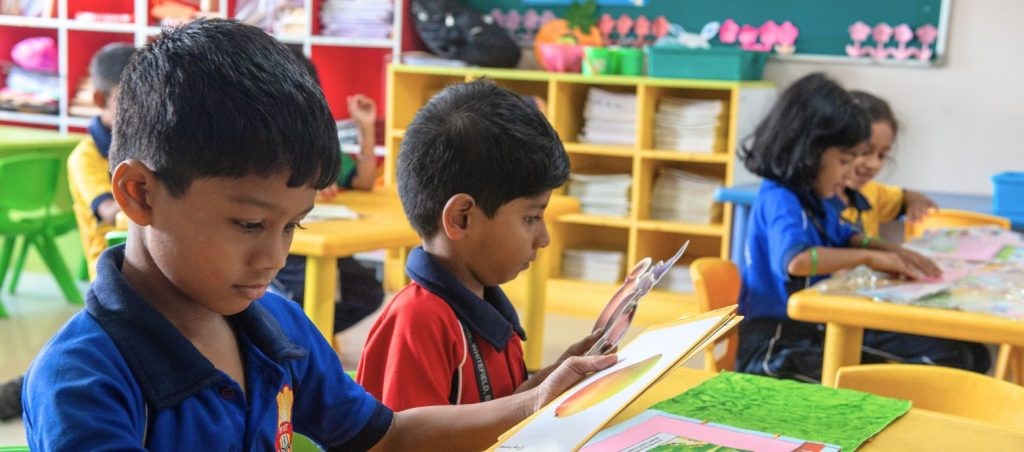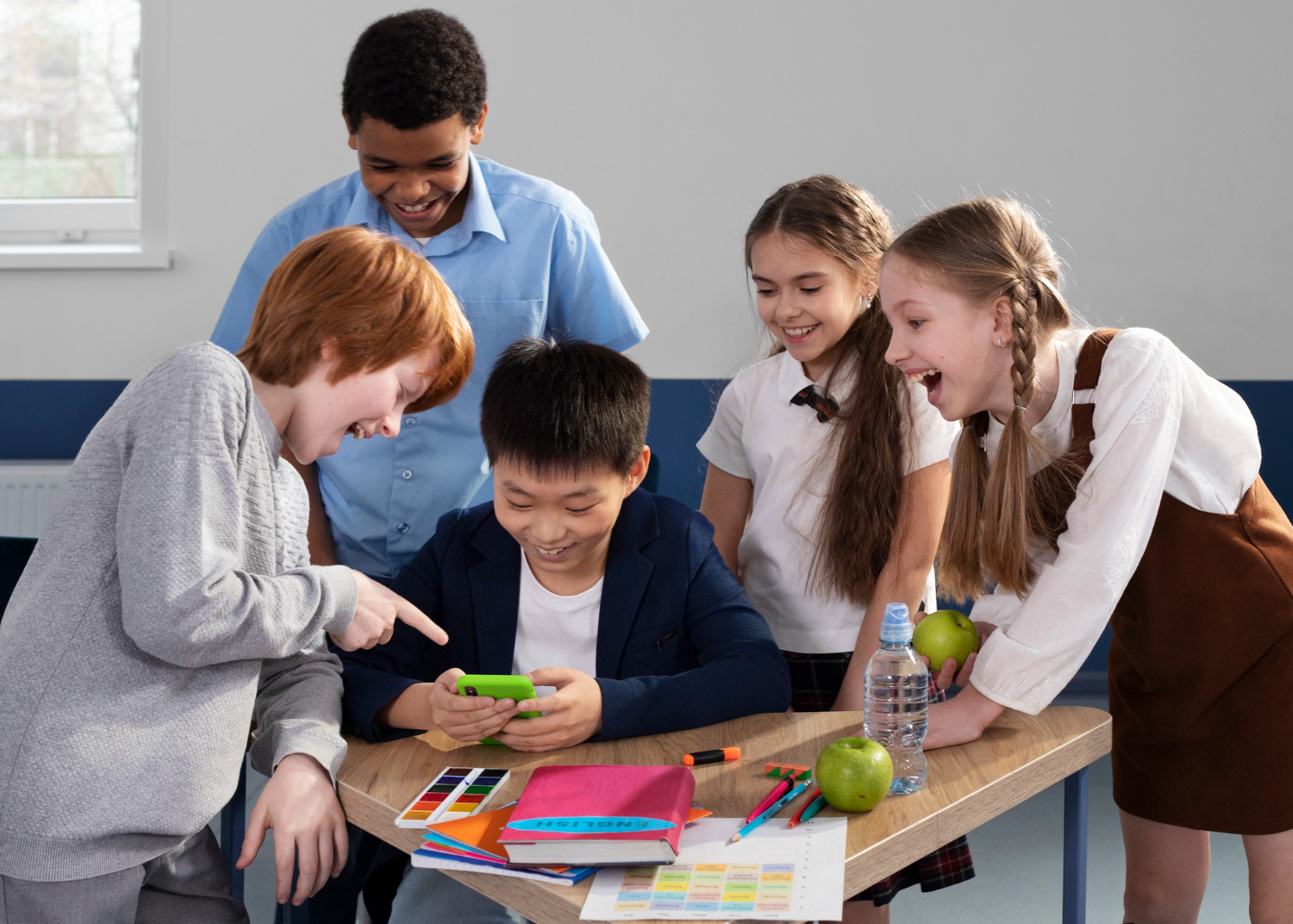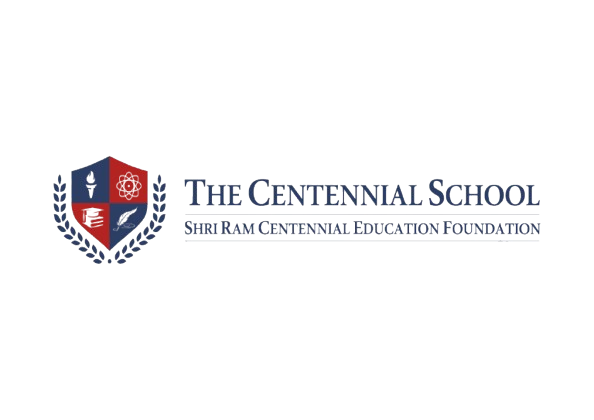Home
Holistic Development Facilities
Holistic Development Facilities
Welcome to the Student Development Centre!
At The Centennial School, we believe that true education goes beyond academics. Our Student Development Centre (SDC) is dedicated to fostering the holistic growth of every student, nurturing their intellectual, emotional, social, physical, and personal well-being. We provide a supportive and enriching environment where students can explore their potential, overcome challenges, and prepare for a successful future.

Our Mission
To empower students to become confident, resilient, well-rounded individuals with a positive outlook on life, equipped with the skills and values to thrive in a dynamic world. What We Offer (Our Key Pillars)

Academic Support
Study skills workshops (time management, note-taking, exam preparation)
Tutoring programs (peer-to-peer or teacher-led)
Learning strategies for diverse learning styles
Support for students with special educational needs (SEN)
Career Exploration
Career counseling and guidance sessions
Information on higher education options (colleges, universities, vocational training)
Workshops on resume building, interview skills, and job search strategies
Internship and work experience opportunities
Alumni networking events
Aptitude and interest assessments


Personal & Social Development
Guidance & Counselling Services:
Individual and group counseling for personal, social, and emotional challenges
Stress management and mental well-being workshops
Conflict resolution and communication skills training
Peer support programs
Referrals to external specialists when needed
Co-curricular & Experiential Learning
Student Council and prefectorial board initiatives
Leadership training camps and workshops
Opportunities to organize school events and projects

Clubs & Societies
A diverse range of clubs (e.g., debate, literary, science, arts, music, drama)
Opportunities to explore interests and develop talents
Inter-school competitions and events
Service Learning & Community Engagement
Volunteer opportunities within the school and local community
Awareness campaigns for social causes
Developing a sense of social responsibility and civic duty
Career Counseling in Schools
Career counseling in schools is a crucial component of holistic student development, helping students navigate the complex landscape of academic choices and future career paths. It aims to empower students to make informed decisions that align with their interests, aptitudes, values, and the evolving job market.
I. Core Objectives of Career Counseling in Schools:
- Self-Discovery: Helping students understand their strengths, weaknesses, interests, personality traits, values, and aptitudes through various assessments and reflective exercises.
- Career Exploration: Providing comprehensive information about diverse career options, educational pathways (colleges, universities, vocational training), industry trends, and job market demands.
- Informed Decision-Making: Guiding students to make well-reasoned choices about subject streams, higher education programs, and career paths, reducing uncertainty and stress.
- Skill Development: Equipping students with essential 21st-century skills crucial for academic and career success, such as critical thinking, problem-solving, communication, teamwork, leadership, and digital literacy.
- Goal Setting & Planning: Assisting students in setting realistic short-term and long-term career goals and developing actionable plans to achieve them.
- Bridging Education and Employment: Connecting students with real-world experiences through internships, job shadowing, and interactions with professionals to gain practical insights into different careers.
- Emotional & Psychological Support: Providing a safe space for students to discuss anxieties, doubts, and pressures related to career choices, promoting mental well-being.
- Parental Involvement: Engaging parents in the career decision-making process, ensuring they are informed and supportive of their child's aspirations.
II. Key Components and Services Offered:
Individual Counseling Sessions:
- One-on-one personalized discussions with a qualified career counselor.
- Addressing individual student concerns, aspirations, and challenges.
- Tailored guidance based on assessment results and personal profiles.
Group Workshops and Seminars:
- Career Awareness: Sessions introducing various career fields, emerging professions, and interdisciplinary opportunities.
- Skill-Building: Workshops on resume writing, interview techniques, public speaking, effective communication, and time management.
- Higher Education: Information sessions on university admissions processes (domestic and international), entrance exams (e.g., SAT, JEE, NEET, CUET), scholarship opportunities, and financial aid.
- Specific Industry Insights: Guest speakers from various professions, panel discussions, and alumni talks sharing their career journeys.
Psychometric Assessments:
- Aptitude Tests: Measuring innate abilities in areas like logical reasoning, verbal ability, numerical reasoning, etc.
- Interest Inventories: Identifying areas of passion and enjoyment.
- Personality Tests: Understanding personality traits that might align with certain work environments or roles.
- These tests provide data-driven insights to help students explore suitable career paths.
Career Exploration Activities:
- Career Fairs/Melas: Organizing events where representatives from various colleges, universities, and industries interact directly with students.
- Job Shadowing/Internships: Arranging opportunities for students to observe professionals at work or gain hands-on experience in a field of interest.
- Industry Visits: Field trips to companies, research institutions, or educational facilities to provide real-world exposure.
- Informational Interviewing: Guiding students on how to conduct interviews with professionals in fields they are curious about.
Information Resources:
- Maintaining a well-stocked career library (physical and digital) with books, brochures, online platforms, and reputable websites.
- Providing access to career counseling software and online tools for research and planning.
- Regular updates on admission deadlines, scholarship announcements, and changes in educational policies (e.g., NEP in India emphasizes early career advising and flexibility).
Alumni Network:
- Leveraging the school's alumni network for mentorship, guidance, and sharing real-world experiences.
- Organizing alumni interaction sessions.
Parental Engagement:
- Parent workshops and seminars on career guidance.
- Joint counseling sessions with students and parents.
- Providing resources and information for parents to support their child's career journey.
TEACHER DEVELOPMENT
Teacher Development Program (TDP)
A Teacher Development Program (TDP) in schools refers to a structured, ongoing initiative designed to enhance the professional knowledge, skills, and practices of educators. Its primary goal is to improve teaching quality, ultimately leading to better student learning outcomes.
Key Aspects:
- Continuous Learning: TDPs are not one-off events but a continuous process of growth throughout a teacher's career. The National Education Policy (NEP) 2020 in India, for example, emphasizes at least 50 hours of continuous professional development for every teacher annually.
Focus Areas:
- Pedagogy & Methodology: Modern teaching techniques, student-centered learning, differentiated instruction, use of technology (ICT) in the classroom.
- Subject Matter Expertise: Deepening content knowledge in their respective subjects.
- Classroom Management: Strategies for creating a positive and effective learning environment.
- Assessment & Evaluation: Designing effective assessments and providing meaningful feedback.
- Social-Emotional Learning (SEL): Developing teachers' skills to foster students' emotional intelligence, well-being, and life skills.
- Inclusive Education: Strategies for supporting diverse learners, including those with special educational needs.
- Leadership & Mentorship: Developing leadership qualities for senior teachers and mentoring skills for experienced educators.
Varied Formats:
- Workshops & Seminars: Expert-led sessions on specific topics.
- Peer Learning & Collaboration: Teachers sharing best practices, observing each other's classes, and engaging in collaborative lesson planning.
- Coaching & Mentoring: Experienced teachers or external coaches providing individualized support and feedback.
- Conferences & Webinars: Attending external professional gatherings to stay updated on educational trends.
- Online Courses & Certifications: Utilizing digital platforms for flexible learning.
- Action Research: Teachers conducting small-scale research in their own classrooms to improve practice.
Health and Wellness Centre
"Health and wellness in school" refers to a comprehensive approach to fostering the physical, mental, emotional, and social well-being of students and staff within the school environment. It's recognized as fundamental for effective learning, personal growth, and overall development.
Key Components:
Physical Health:
- Nutrition: Promoting healthy eating habits, providing nutritious meals (e.g., through school canteens, mid-day meal schemes), and educating about balanced diets.
- Physical Activity: Encouraging regular exercise, sports, and outdoor play through physical education classes, extracurricular activities, and advocating for active breaks.
- Hygiene & Sanitation: Ensuring clean and safe school premises, access to clean drinking water, proper sanitation facilities, and educating students on personal hygiene (handwashing, dental care).
- Health Check-ups & Screenings: Conducting regular health check-ups (eyesight, dental, general physical) and vaccinations as per guidelines.
- First Aid & Emergency Preparedness: Having trained staff, well-equipped first aid kits, and clear protocols for medical emergencies.
Mental and Emotional Well-being:
- Counselling Services: Providing access to trained school counselors or psychologists for individual and group support, addressing issues like stress, anxiety, depression, peer pressure, and academic challenges.
- Life Skills Education: Integrating life skills into the curriculum, such as critical thinking, problem-solving, communication, empathy, stress management, and emotional regulation.
- Positive School Climate: Fostering a safe, inclusive, and supportive environment where students feel valued, respected, and free from bullying or discrimination.
- Awareness Programs: Conducting workshops and sessions on mental health literacy, substance abuse prevention, digital well-being, and safe online practices.
- Mindfulness & Yoga: Introducing practices like yoga and mindfulness to help students manage stress and improve focus.
Social Health:
- Interpersonal Relationships: Promoting positive interactions among students, teachers, and staff, fostering teamwork, respect, and conflict resolution skills.
- Anti-Bullying Initiatives: Implementing clear anti-bullying policies and programs to ensure a safe social environment.
- Community Engagement: Encouraging students to participate in community service and social responsibility initiatives.
Why It's Important:
- Improved Learning Outcomes: Healthy and well-adjusted students are better able to focus, learn, and perform academically.
- Enhanced Well-being: Contributes to students' overall happiness, resilience, and ability to cope with challenges.
- Reduced Risk Factors: Helps prevent health issues, substance abuse, and mental health problems in the long run.
- Holistic Development: Aligns with the National Education Policy (NEP) 2020's emphasis on holistic development, recognizing that well-being is critical for quality learning.
- Safe and Supportive Environment: Creates a nurturing space where students feel secure and supported, both physically and emotionally.
© 2025 Centennial School


